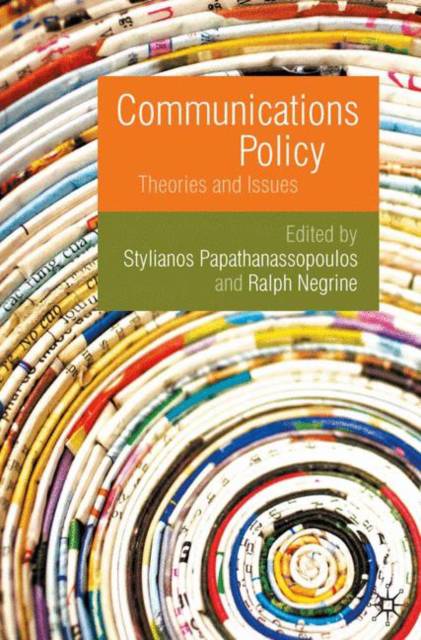
- Retrait gratuit dans votre magasin Club
- 7.000.000 titres dans notre catalogue
- Payer en toute sécurité
- Toujours un magasin près de chez vous
- Retrait gratuit dans votre magasin Club
- 7.000.0000 titres dans notre catalogue
- Payer en toute sécurité
- Toujours un magasin près de chez vous
Communications Policy
Theories and Issues
Stylianos Papathanassopoulos, Ralph M Negrine
Livre broché | Anglais
46,45 €
+ 92 points
Format
Description
Culture, politics, economics and technology all impact upon policy decisions. To investigate the factors that influence communications policy, however, one has to go beyond conventional views of media and communication studies and combine these with policy studies. Communications Policy: Theories and Issues utilizes new research to highlight key debates and developments, and addresses a broad spectrum of contemporary concerns regarding the structure and the organization of communications systems in the past, present and future.
Combining theoretical analysis with empirical research findings, this comprehensive text explores the contemporary theories and issues in communications policy that affect all democratic societies as they seek to address the challenges of emerging information and communications technologies. Featuring contributions from distinguished authors across a range of media disciplines, Communications Policy introduces challenging ideas about how communications should be structured in the future and is essential reading for all policy makers, researchers and students of communications policy. Editors: Stylianos Papathanassopoulos is Professor in Media Organization at the Faculty of Communication and Media Studies at the National and Kapodistrian University of Athens. He is the author of Television in the 21st Century (2005), Media and Politics (2004) and European Television in the Digital Age: Issues, Dynamics and Realities (2002). Ralph Negrine is Professor of Political Communication in the Journalism Studies Department at the University of Sheffield. His previous books include The Transformation of Political Communication (Palgrave, 2008), Television and the Press Since 1945 (1999) and The Communication of Politics (1996). Contributors: Bram Abramson, Johannes M. Bauer, Sandra Braman, Dom Caristi, Alistair Duff, Gisela Gil-Egui, Alison Harcourt, Jackie Harrison, Robert W. McChesney, Serge Proulx, Marc Raboy, Concetta M. Stewart, Yan Tian and Roxanne Welters.Spécifications
Parties prenantes
- Auteur(s) :
- Editeur:
Contenu
- Nombre de pages :
- 224
- Langue:
- Anglais
Caractéristiques
- EAN:
- 9780230224599
- Date de parution :
- 14-03-17
- Format:
- Livre broché
- Format numérique:
- Trade paperback (VS)
- Dimensions :
- 155 mm x 231 mm
- Poids :
- 385 g

Les avis
Nous publions uniquement les avis qui respectent les conditions requises. Consultez nos conditions pour les avis.






